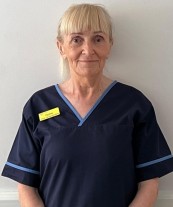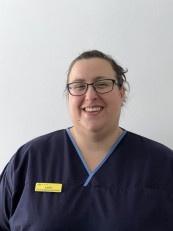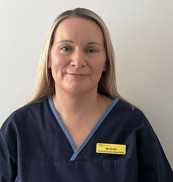In this section
Dermatology Chronic Disease Management Team
We offer patient-centred, evidence-based care for our patients with chronic skin conditions. These conditions include psoriasis, eczema and acne. Our patients on systemic and biologic medications to help manage their skin condition require regular reviews and assessments by the team. We holistically support patients and their families enabling them to make informed decisions regarding their treatment.
We work in partnership with the dermatology consultants and wider multidisciplinary team to ensure a seamless provision of care delivery. We communicate with primary care providers (GP) to keep them informed of the patients treatment plan, any prescribing requirements and possible shared care of their treatment.
What we do in our team
- Assessment of patients with chronic skin conditions, requiring systemic and biologic medications.
- Monitoring patients on systemic and biologic medications
- Monitoring acne patients on Isotretinoin.
- The use of screening tools to assess skin, impact of skin disease on wellbeing, psoriatic arthritis and psychological wellbeing.
- Checking test results and liaising with the patient’s consultant.
- Biologics and Immunomodulators Register recruitment and collection of data. This is used nationally to monitor the long term safety of drugs used to treat psoriasis.
- Involvement in research studies with patient consent.
- Undertaking regular audits to monitor and improve care.
- Communicating with GP to keep them informed of the patients plan of care.
- Independent Nurse Prescribers.
Your first appointment will be with a dermatology consultant who will initiate your treatment plan. We work in collaboration with the consultants to safely support and monitor you whilst on your medication. Depending on the medication required there are certain screening tests such as blood tests and chest x-rays that you will have prior to treatment to make sure it is safe for you to start your medication.
You will have regular appointments where we will assess your skin and response to treatment as well as monitor any side effects that you may have due to the medication. You should expect to have regular blood tests during your treatment.
Our clinics
We have nurse-led clinics in York, Selby, Scarborough and Malton. These clinics will be either in person or via telephone. We also have a weekly complex psoriasis clinic with Dr Wu and a weekly complex eczema clinic with Dr Mulholland at York Hospital.
Contact us
The specialist nurse team are contactable between 7:30am - 3:30pm, Monday to Friday (excluding bank holidays).
Call: 01904 726625 for any questions or concerns about your treatment plan, medication or issues with your skin condition.
We have a voicemail facility and aim to respond to messages within 24 hours.
Who we are |
||
 |
 |
 |
|
Pauline Stopford-Taylor, Lead Clinical Nurse Specialist |
Penny Nash, Clinical Nurse Specialist |
Leah Hoggan, Clinical Nurse Specialist |
 |
|
|
| Melanie Bruton, Clinical Nurse Specialist |
Sian Sturdy, Admin Coordinator |
|
Patient information leaflets
Go to our patient information leaflets page or open one of our key leaflets below:
- Skin self examination
- How to use moisturisers and topical steroids
- Stopping methotrexate when in hospital
Useful links and resources
Skin conditions and medications:
- British Association of Dermatologists: bad.org.uk/
- Eczema: nhs.uk/conditions/atopic-eczema/ and https://eczema.org/
- Psoriasis: nhs.uk/conditions/psoriasis/ and https://www.psoriasis-association.org.uk/
- Acne: nhs.uk/conditions/acne/ and https://knowyourskin.britishskinfoundation.org.uk/condition/acne/ and acnesupport.org.uk/
- Hidradenitis Suppurativa: nhs.uk/conditions/hidradenitis-suppurativa/
Phlebotomy (blood taking) services:
Health promotion:
Contact us
Call: 01904 726625
7:30am - 3:30pm, Monday to Friday (excluding bank holidays)
We have a voicemail facility and aim to respond to messages within 24 hours.







